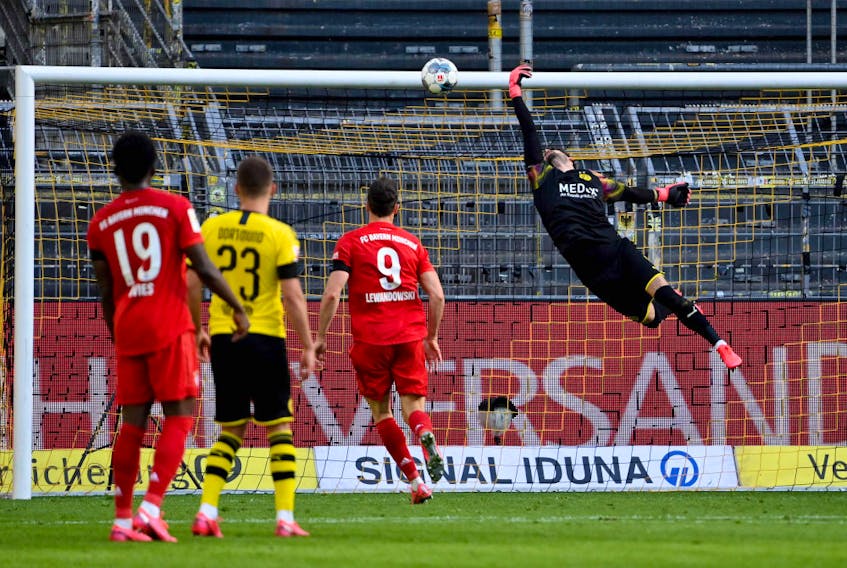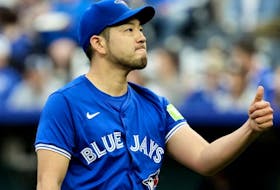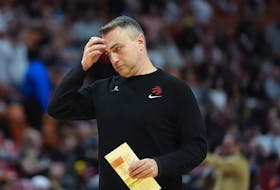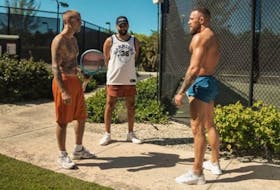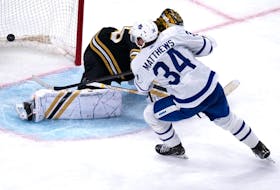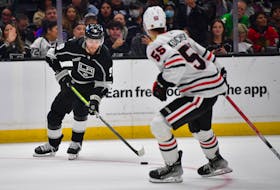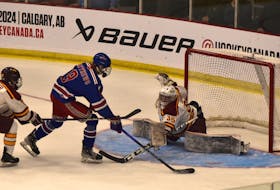When the final whistle trilled to mark the end of the match on Tuesday evening, Joshua Kimmich extended both arms, clenched both fists, and roared. And then he roared again.
To all the speculation that big-time sports without fans in the stands would lack intensity, Kimmich’s fierce mug provided a significant counterpoint.
Kimmich, playing in midfield for Bayern Munich, provided the decisive goal about an hour earlier with a cheeky chip shot from just outside the penalty area that Borussia Dortmund goalkeeper Roman Burki, racing back like a baseball outfielder, couldn’t get enough of a mitt on to swat away.
There, too, Kimmich went nuts, roaring in celebration and collecting hugs and pats from teammates. The players are not supposed to do this, but they are evidently carried away in the moment. The result is startling, after two months watching humans move around each other like they are all in six-foot bubbles. All of this touching and feeling is just so unusual, the relative equivalent of watching German footballers engage in sensual kisses after a goal.
While sports in a few countries have been back for a short while, the match between Bayern and Dortmund was arguably the most meaningful event yet. The clubs are rivals at the top of the Bundesliga, Germany’s top flight, and their two annual league meetings have earned the not terribly original label Der Klassiker. I would have expected the Germans to invent a long word comprised of several mashed-up-words: Derlklassichvonwertungunspart.
Anyway, in this interrupted season, Bayern came into the match four points up on Dortmund. A win for the visitors from Munich would give them a strong advantage in the Bundesliga title race, while a loss would have dramatically improved Dortmund’s chances to overtake them. In normal times, this would have been one of those matches with a crackling, raucous atmosphere, with Dortmund’s fans trying to give them an edge over Germany’s most dominant club. Instead, the yellow and black seats at Westfalenstadion, tragically given the bland corporate moniker Signal Iduna Park, were empty and silent. Would that matter? What would it feel like?
Given the stakes, Der Klassiker stood as something of a proxy for all the games yet to be played by sports leagues in North America. Not long after it finished, NHL commissioner Gary Bettman announced the rough particulars of a plan to resume with an expanded playoffs no earlier than July 1. The National Basketball Association could make a similar announcement as early as this week, although its various interested parties are still trying to figure out the format and teams involved.
Looming over all the quirks of these return-to-play plans, with their play-in games and hub cities and health-and-safety protocols, is the larger question of what any of this will look like on the court or ice. Are the NHL and NBA going to twist themselves into knots, throw out their usual post-season formats, put all their players and staff at some elevated degree of infection risk and end up with something that doesn’t resemble their normal product? Will the lack of an in-stadium atmosphere dramatically hurt the televised experience? Television is the only reason any of this is happening.
Bettman and his counterparts would have been encouraged by Der Klassiker. While I can’t claim to have watched much Bundesliga before Tuesday, the action on the pitch at Westfalenstadion was a solid approximation of top-flight soccer. The pace was fast, and the players didn’t appear to be lumbering about like they were out of step after a couple of months of non-action. Dortmund’s Norwegian teen sensation Erling Haaland had several shots, but none of them great scoring opportunities, and on his best chance on a break he was chased down from behind by Bayern’s Canadian teen sensation, Alphonso Davies. (Side note: The Bundesliga’s run as the only European league in action is bound to swell demands for Davies’ services, although he just extended his contract to stay in Munich. He was a delight on Tuesday, dashing all over the field and at one point undressing several Bayern players on the dribble before being bundled over.)
The atmosphere would have been better with a big crowd, but it was an intense match anyway, with no lack of hard tackles. It was in those instances that the crowd’s absence was most notable, with no swells of outrage every time a player was taken down. A curious side effect of that was that players seemed less inclined to bleat about fouls not called and cards not shown. Maybe they realized they couldn’t play to the crowd to influence the officials, maybe there was more of a sense of collegiality because the athletes have a bit of an all-in-this-together mentality in these times. Whatever the reason, it worked. They played hard, they played like it mattered, they played like there were few distractions because there were not any.
Will any of that translate to indoor arenas, where there will be weird echoes and where the camera angles will make the lack of fans more obvious to the TV viewer? It will be a different challenge, but not an environment that is completely unfamiliar to the participants. Anyone who has ever watched the World Juniors will know that a spectacular hockey game can happen before near-empty stands in Ufa or Malmo, and basketball lore is full of Greatest Games Ever that allegedly took place in practices and team scrimmages.
There remain many questions and concerns as pro leagues totter toward returning here. But the action itself looks like it should not be one of them.
Postmedia News
Copyright Postmedia Network Inc., 2020

